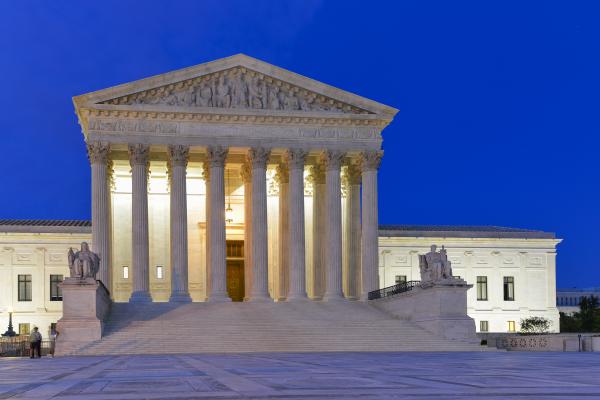The Supreme Court on Monday sided with the evangelical owners of Hobby Lobby Stores Inc., ruling 5-4 that the arts-and-crafts chain does not have to offer insurance for types of birth control that conflict with company owners’ religious beliefs.
Beyond the specifics of the Hobby Lobby case before them, the justices broke new legal ground by affirming that corporations, not just individual Americans or religious non-profits, may claim religious rights.
Does Monday’s decision mean, however, that the religious beliefs of business owners stand paramount? That they are more important than a female employee’s right to choose from the full array of birth control methods she is promised under the Affordable Care Act? Or that a business owner may invoke his religious rights to deny service to a gay couple?
Not necessarily, legal experts say.
The decision for Hobby Lobby, the justices made clear, applies to privately held companies such as Hobby Lobby — not vast publicly held corporations, for which the owners’ religious beliefs would be difficult to discern.
But in general, the ruling — the most-anticipated in the high court’s current session — is a victory for conservatives who had hoped the justices would find that the federal government had tread too heavily on the Constitution’s guarantee of free exercise of religion.
“This case demonstrates that Americans don’t give up their religious freedom when they open a family business,” said Lori Windham, senior counsel at the Becket Fund for Religious Liberty, which is representing Hobby Lobby. “The court understands that religion isn’t limited to what you do in a synagogue on Saturday or a church on Sunday.”
What the majority opinion says:
- The 1993 Religious Freedom Restoration Act (RFRA), which sets a high bar for any federal law that restricts religious practice, can be invoked by closely held for-profit businesses.
- Though employers at such companies can’t be forced to insure for contraception that conflicts with their religious beliefs, that doesn’t mean that any religious employer can refuse to provide anything that doesn’t meet their personal religious tests — blood transfusions or vaccinations, for example.
- The government could have found a way to achieve the goals of the Act’s so-called contraception mandate in a way that impinged less on religious rights, a RFRA requirement.
Lawyers for Hobby Lobby argued that the Affordable Care Act, President Obama’s landmark health care law, had overstepped when it required the company and another owned by a Mennonite family — Conestoga Wood Specialties Corp. — to insure employees for birth control the companies owners found contrary to their Christian beliefs.
(READ: Transcript of oral arguments in Burwell v. Hobby Lobby Stores and Conestoga Wood Specialties v. Burwell)
Agreeing with the majority opinion, which was written by Justice Samuel Alito: Chief Justice John Roberts and Justices Antonin Scalia, Clarence Thomas and Anthony Kennedy, the court’s swing vote, who also wrote a concurring opinion. The dissenting opinion, written by Justice Ruth Bader Ginsberg, was joined by Justice Sonia Sotomayer. Justices Elena Kagan and Stephen Breyer wrote a separate dissent.
The justices affirmation of religious rights in Burwell v. Hobby Lobby reflects rulings in two other major religion cases in the past three years, and the seeming intention of the Robert’s court to preserve religious rights when they compete with others or run in the face of anti-discrimination laws.
In Hosanna-Tabor in 2012, the court backed a Lutheran school’ that had fired a teacher who claimed she had been discriminated against under the Americans With Disabilities Act. In Greece v. Galloway in May, the court approved the convening of government meetings with highly sectarian prayers.
Lauren Markoe and Cathy Lynn Grossman write for Religion News Service. Via RNS.
Image: Supreme Court Building, Orhan Cam / Shutterstock.com
Got something to say about what you're reading? We value your feedback!
